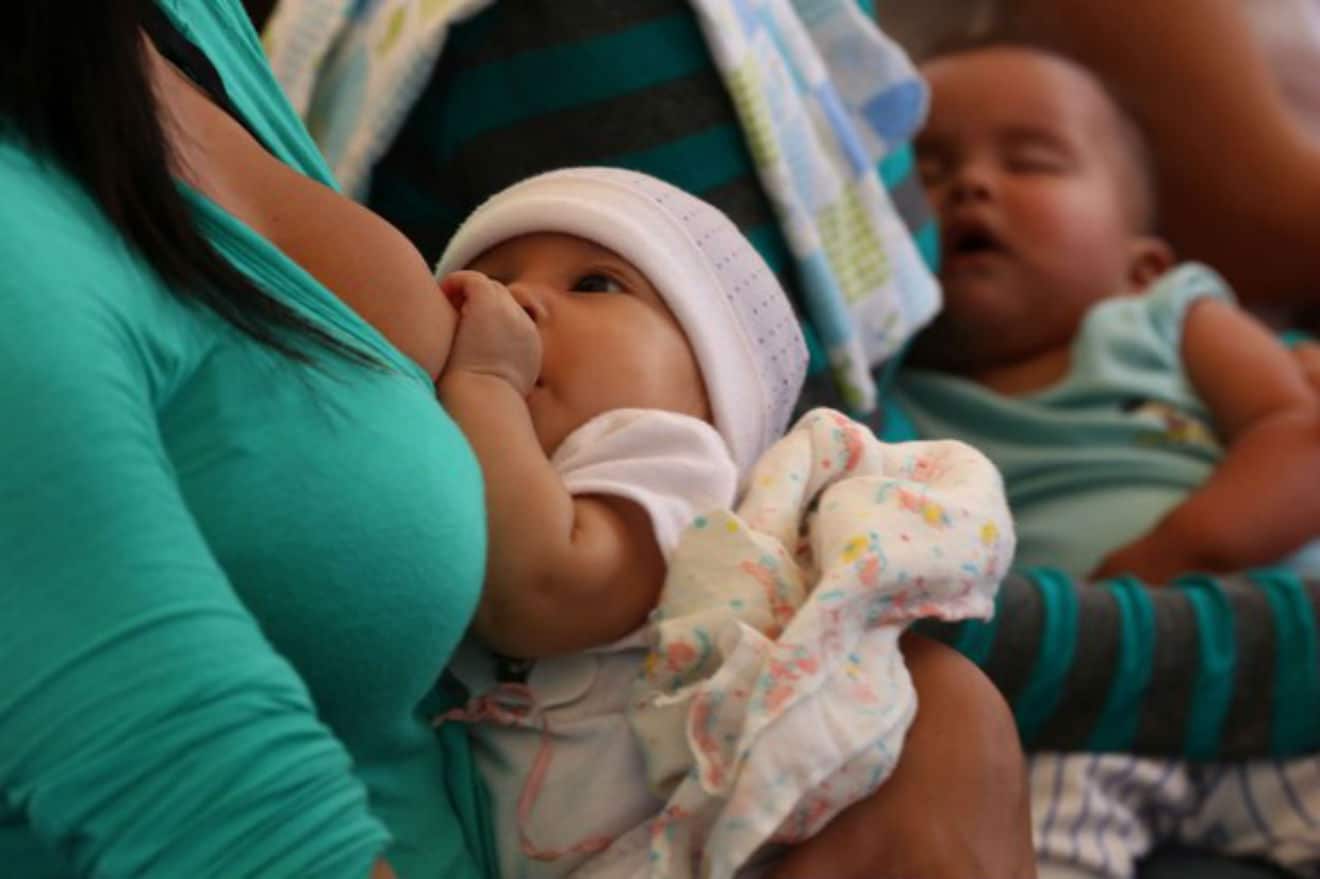
Venezuelan women breastfeeding their children. Photo: Correo del Orinoco/File photo.

Orinoco Tribune – News and opinion pieces about Venezuela and beyond
From Venezuela and made by Venezuelan Chavistas

Venezuelan women breastfeeding their children. Photo: Correo del Orinoco/File photo.
Venezuela stands out as one of the leaders in designing a comprehensive legal framework aimed at safeguarding and promoting breastfeeding. Rooted in a holistic family perspective, this approach positions breastfeeding as the primary source of nutrition, ensuring babies receive all the vital nutrients essential for their growth and development.
President Nicolás Maduro took to his Twitter account on Tuesday, August 1, to declare that Venezuela leads the way in terms of legislative progress for ensuring and safeguarding breastfeeding.
“We are one of the countries with more advances in legislation for the protection and guarantee of breastfeeding. In this week dedicated to celebrating the promotion of this loving practice of freedom and socio-cultural resistance, we ratify our commitment to Venezuelan mothers,” Maduro wrote.
https://twitter.com/NicolasMaduro/status/1686368703649136640
Both President Maduro and his predecessor, Hugo Chávez, have consistently reaffirmed their dedication to promoting this practice, positioning themselves as advocates of the foremost step toward food security and sovereignty. This commitment has been enshrined within the 2019-2025 Homeland Plan.
Breastfeeding legislation
Venezuela has established a range of legal mechanisms aimed at ensuring and safeguarding citizens’ breastfeeding rights. Notably, in 2007, the law dedicated to the promotion, protection, and support of breastfeeding was approved to guarantee the well-being, health, and comprehensive growth of Venezuelan children. The law affirms that “breastfeeding in public places is a right” across the country.
This legislation also includes provisions for fathers, granting them a 15-day postnatal leave to actively participate in the early stages of exclusive breastfeeding during the child’s initial days of life. This information was confirmed in a press release from Venezuela’s National Institute for Nutrition (INN).
President Maduro Announces Creation of Great Women’s Mission Venezuela
Similarly, Article 76 of the Constitution of the Bolivarian Republic of Venezuela ensures comprehensive protection for maternity, irrespective of the mother’s marital status. As a result, the state is obligated to ensure support and assistance from the moment of conception, while also upholding stipulated breaks and leaves for the mother.
By 2021, Venezuela had made remarkable strides in achieving a nationwide prevalence of breastfeeding up to six months of age, surpassing the 77% mark. This statistic indicates that a substantial eight out of ten children are benefiting from breastfeeding, a feat that aligns with the benchmarks outlined by both the World Health Organization and the UN 2030 Agenda on Sustainable Development, which recommend prevalence surpassing the 50% threshold. It is also important to highlight that human milk has been formally integrated into Venezuela’s National Statistical System, specifically within the Food Balance Sheets.
The Venezuelan government has taken an additional step by authorizing a bonus for the promotion of humane childbirth and breastfeeding through the carnet de la patria, a government-issued homeland card created in 2016 featuring a unique personalized QR code.
Furthermore, the National Superior Body for Humanized Childbirth and Breastfeeding has been established to provide comprehensive care and protections for pregnant and breastfeeding mothers through support from ministries, institutions, missions, and other diverse grassroots expressions of the people’s power.
Breastfeeding as an environmentally sustainable ancestral practice
Marilyn Di Luca, the president of the INN, highlighted the benefits of breastfeeding, which, in addition to being an ancestral practice linked to nature, is the optimal nourishment tailored to meet the needs of the baby. It supports the baby’s gradual growth, adapting and enhancing its composition in alignment with the child’s evolving requirements.
“Breast milk is the first vaccine, generating immunity at that initial age, but it also has an important psychological impact by promoting future emotional stability and reducing parental violence; at the same time, breastfeeding is environmentally friendly and cares for the planet, which is linked to the ecological balance in the Homeland Plan,” said the nutritionist.
Lastly, she underscored that the Venezuelan government takes the lead in championing breastfeeding, serving as its foremost advocate. Simultaneously, she conveyed that expectant mothers are given top priority through the humanized childbirth plan.
Translation: Orinoco Tribune
OT/JRE/KZ/BLA